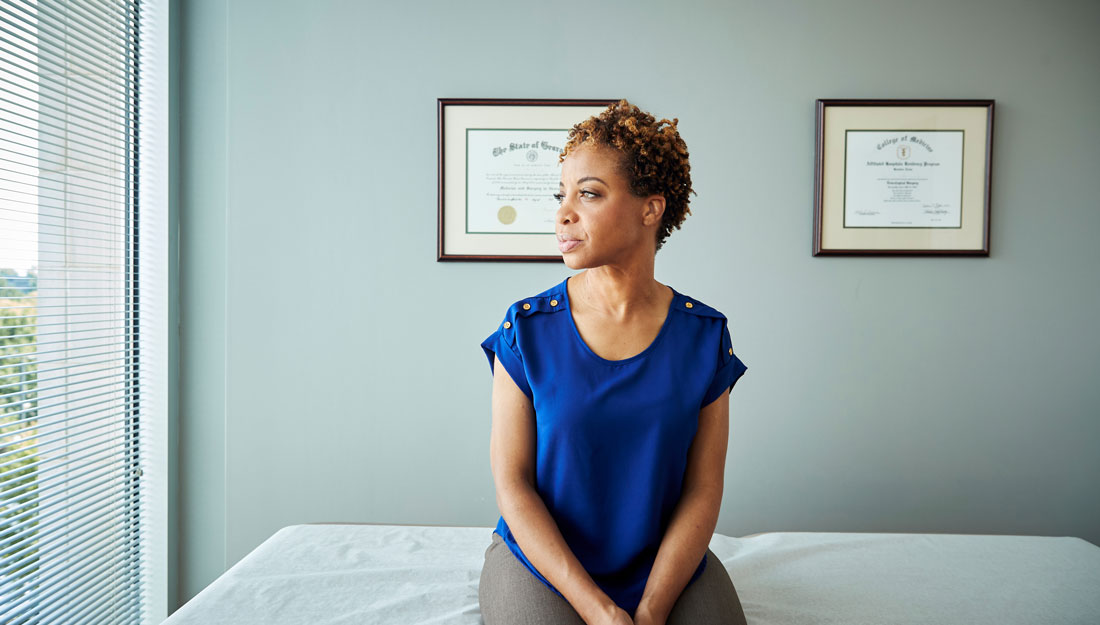- Lasha Markham
- Health Tips, Healthy Living, Medicine, Show on VR homepage
PCOS: Bringing light to hormonal disorders
A women's health specialist provides insight on PCOS and its impact on women

A PCOS diagnosis can be overwhelming, but early detection, treatment and lifestyle changes can significantly improve overall health. (Adobe Stock)
Polycystic ovary syndrome, or PCOS, is a common disorder that impacts about 20 percent of women. The disease is characterized by metabolic and hormonal imbalances that lead to increased androgens, irregular menstrual cycles, insulin resistance and unwanted excess hair. It is often associated with infertility.
Michele Garant, DO, physician at Texas A&M Health Women’s Care Plus in College Station, Texas, has more than 20 years of experience in gynecology and women’s health. She often treats women with PCOS and related disorders. Many women, she said, wait too long to get treatment, which can lead to related complications down the road.
“Over the years, if it goes under diagnosed or untreated, it can lead to things like infertility, hirsutism (hair growth), and acne that can be fairly moderate to severe, with women even having to shave in their 40s and 50s,” she said. “In some cases, where menses are missed for long periods of time, it can even increase the risk of uterine cancer.”
Overtime, she said, PCOS symptoms without intervention can worsen. There are many ways to make changes and improve PCOS symptoms. Garant stresses that any intervention is better than none.
“Sometimes medical therapy is really important, and sometimes medical therapy can be the doorway to having improvement and changing that metabolic situation so that you are able to manage it with everyday life changes,” she said.
Medications like metformin, birth control and spironolactone are often used to treat the disorder, but exercise, diet and supplements can lead to positive changes as well. Some people, Garant said, might just need a little extra help, and women should not be afraid to receive medical treatment and advice.
Who is at risk?
As obesity numbers are on the rise, so, it seems, are the number of women diagnosed with PCOS and other metabolic and hormonal disorders. Garant believes that sedentary lifestyles combined with diet choices could be predisposing people to health conditions such as PCOS.
Women and girls who have a family history of PCOS and related disorders are more likely to develop PCOS themselves. If you’re concerned about being prone to chronic disease—or if you’re a mother with a history of PCOS and worried about your child’s susceptibility to it—Garant emphasizes the importance of prioritizing good nutrition, outdoor exercise and outdoor playtime for your children. In daughters, once menses begin, seek advice if time between periods becomes longer and longer.
Recognizing the problem, Garant said, is the top priority. Many young women don’t speak up when they believe something is wrong, which could lead to consequences later. Through early intervention, open discussion and routine screenings, modern medicine can help prevent disorder progression or serious side effects, like infertility or uterine cancer. Garant urges those who suspect something is wrong to make an appointment with a primary care provider or OB-GYN to discuss concerns around hormonal or reproductive health.
What happens after a PCOS diagnosis?
When you receive a diagnosis, Garant said it’s okay to feel sad and mourn. “Most of the time when you diagnose somebody with PCOS, they go through sort of a mourning, like they have lost something. They’re being given a disease diagnosis, and that can be really, really hard to accept,” she said. “Know that it’s common and know that there are ways to make it better, but that we are responsible for our own well-being. Knowledge is power. Try to make yourself better. There are people out there that can help you.”
After receiving a PCOS diagnosis, lab work is done at least every six months to monitor progress. Part of treatment is changing your diet, exercise and medication. While any major medical diagnoses might feel like a tough pill to swallow, Garant says to take it one step at a time.
“Recognition is probably most of the battle. Try really hard not to feel like you are at fault, like you have a problem that is not fixable. There’s a lot of self-shame and a lot of stuff that goes with that,” she said. Medical therapy is powerful and early intervention is the best way to mitigate the influx of hormonal and metabolic disorders and prevent complications.
“PCOS affects our overall general health in so many different ways that if we can diagnose it, treat it, recognize it, really try to teach young women about it, we can impact their overall health when they’re older,” Garant said. “PCOS and its associated symptoms are ignored way too often. Women deserve better than that.”
Media contact: media@tamu.edu


